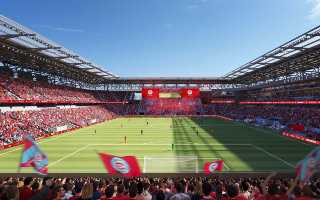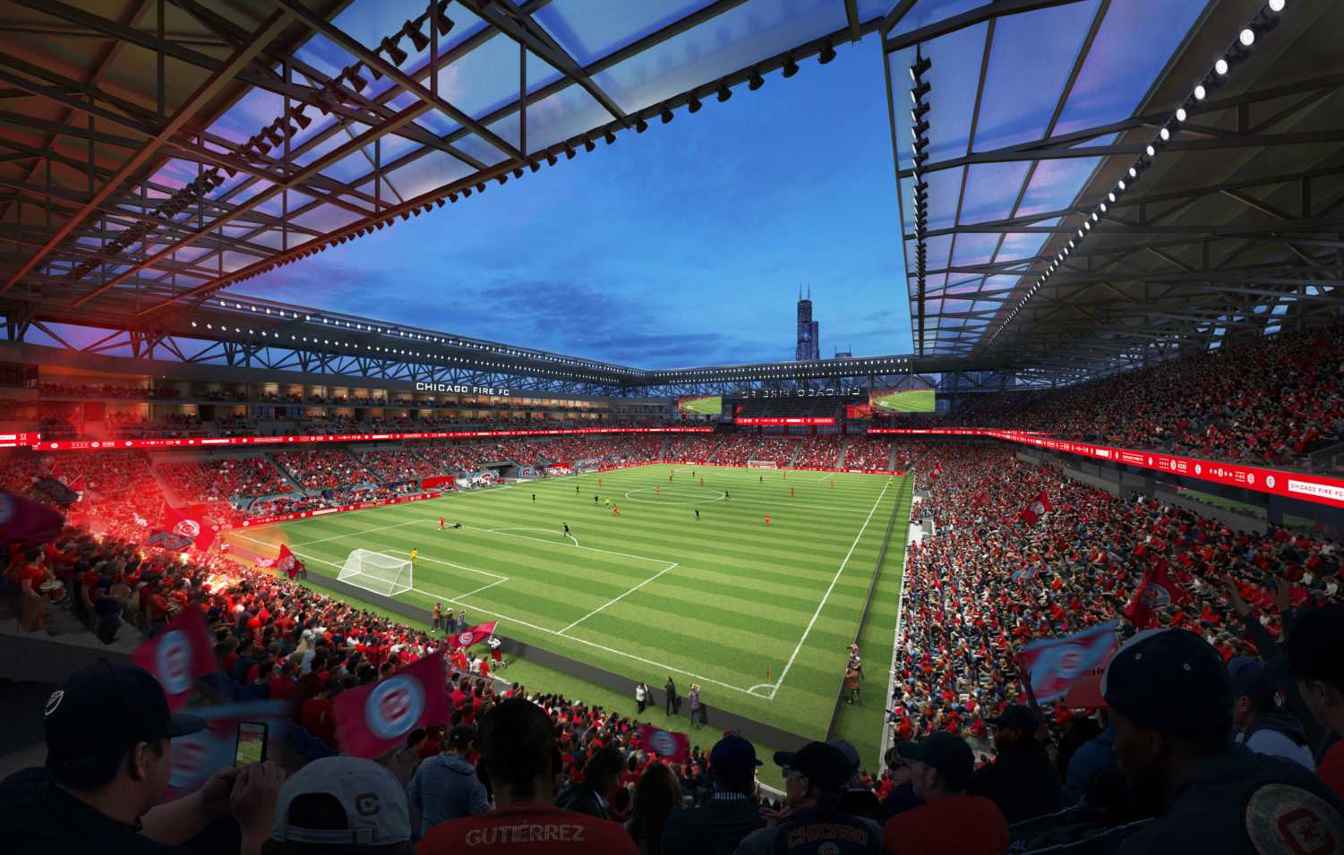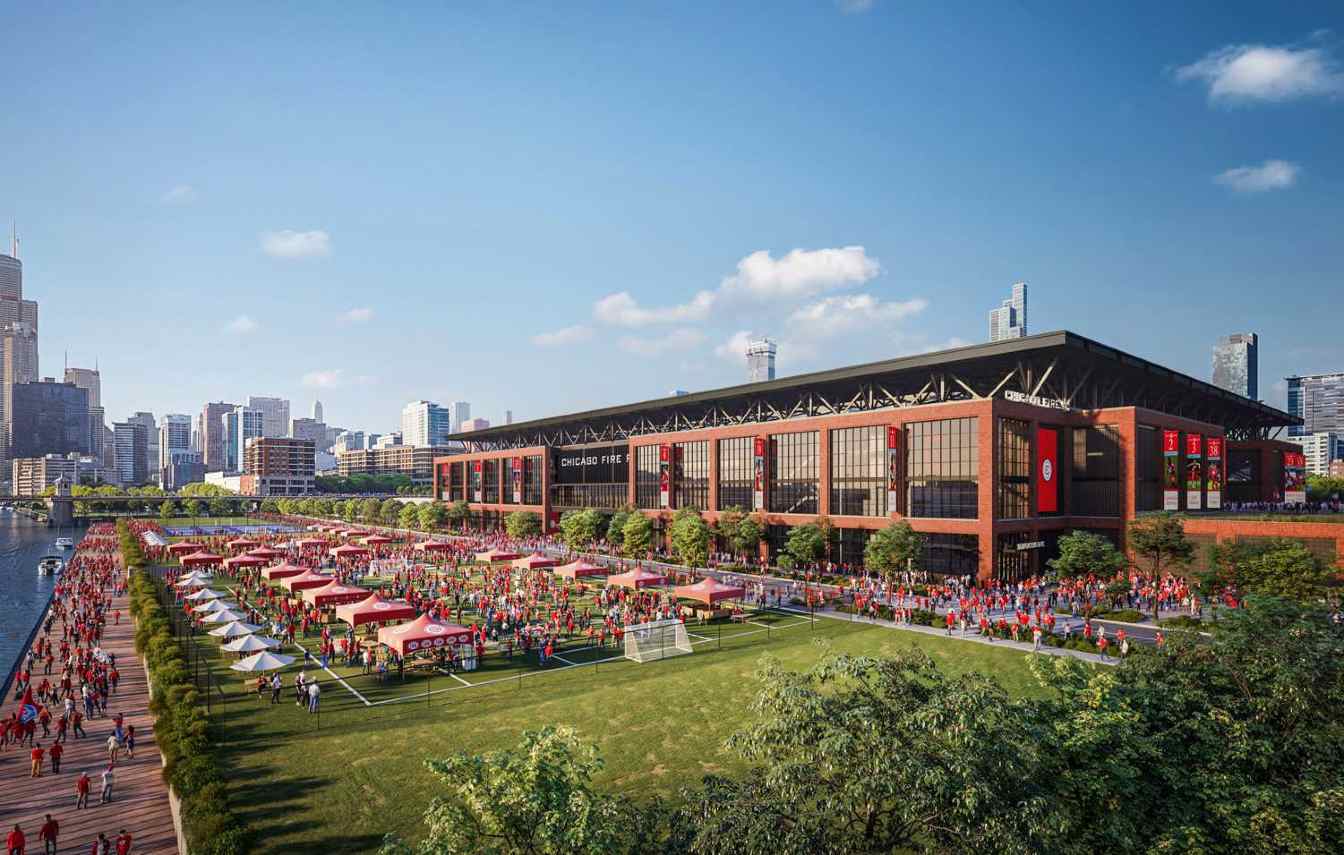USA: Green light for Chicago’s first soccer-specific stadium
source: StadiumDB.com; author: Paulina Skóra
 City council approves $650 million project, paving the way for club owner Joe Mansueto to build a privately funded 22,000-seat MLS stadium.
City council approves $650 million project, paving the way for club owner Joe Mansueto to build a privately funded 22,000-seat MLS stadium.
Advertisement
A new fortress for the Fire
The agreement between developer The 78 – Related Midwest – and Mansueto includes the sale of nearly 10 acres of land for the stadium. Related Midwest retains development rights for surrounding areas. If the schedule holds, the stadium will welcome fans in 2028. Construction will be handled by Pepper Construction, GMA Construction Group, and ALL Construction Group.
Designed by Gensler in the spirit of the Chicago School,
the Chicago Fire FC Stadium echoes the city’s historic warehouses, offers wide views of the river, and features open public spaces. The stadium bowl is designed to bring fans closer to the field, enhancing the matchday atmosphere. It will include 50 VIP boxes, over 500 Loge seats, 3,500 club seats (some with exclusive club-within-club
access), and a steel canopy that reflects sound and light back onto the pitch.
For the most passionate supporters, a safe-standing section for approximately 2,000 people will be created – designed to maximize MLS-level support. We’re building a fortress for our team and a home for our fans,
emphasized Dave Baldwin, the club’s COO.
Urban and logistical challenges
The project requires modifications to The 78 master plan. City documents indicate that the Chicago River promenade will be narrowed from 100 to 40 feet, street connections will be altered, and the planned CTA station at 15th and Clark Street has been removed. Former railway land requires ground stabilization and relocation of underground infrastructure.
Additionally, traffic management is a key challenge: peak hours could see 14–16,000 vehicles near the stadium. Local organizations are requesting independent traffic studies to improve access and mitigate impacts on nearby neighborhoods.
Community concerns amid hopes for growth
While most South Loop residents support the project in online surveys, planning committee meetings reveal ongoing concerns about neighborhood impact, especially in Chinatown, Bronzeville, and Pilsen. Local groups request a Displacement Impact Study
and a Community Benefits Agreement to ensure affordable housing and larger units near the stadium.
Construction is expected to begin in 2026, with the stadium opening in 2028. Until then, Chicago Fire will remain at Soldier Field. The new stadium aims not only to serve the team but also to boost economic development in South Loop, hosting concerts and global events, creating thousands of jobs, and energizing downtown Chicago.
Advertisement
 StadiumDB
StadiumDB
